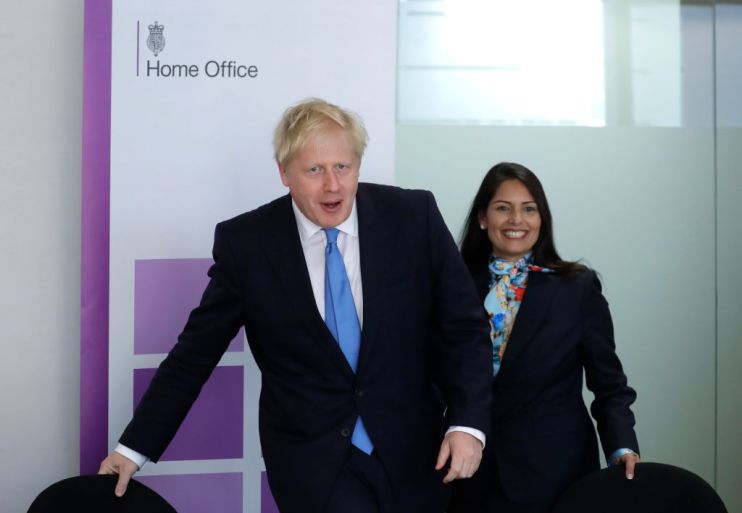Boris and Priti don’t quite grasp how complicated ‘ending free movement’ will be

“Freedom of movement will end” if the UK leaves the EU without a deal on 31 October, according to the government.
At one level, this is a statement of the obvious – in a legal sense, free movement is an EU concept.
Under Theresa May’s deal, which provided for a transition period until December 2020, free movement would, like other provisions of EU law, have continued. But a no-deal Brexit means no transition, and therefore no free movement.
But that tells us nothing about what actually happens to EU citizens who seek to move here to work or study after the end of October.
Remember, “free movement” is not really about what happens at the borders.
No one is planning to stop EU citizens with a valid passport from entering the UK, any more than we stop more than a tiny fraction of Americans or Australians. The question is whether they have the right to work (as now), to access the NHS, to apply for a National Insurance number, and so on.
If not, like people from outside the EU who cannot show that they have the right paperwork, will they be subject to the “hostile environment” policy implemented when May was home secretary?
This week we learnt that if the new home secretary Priti Patel has her way, that is indeed the objective.
But the problem with ending free movement, not just in some abstract legal sense but in practice, by making EU citizens subject to the same rules as those from outside the EU, is the existence of those EU citizens already here – the same ones who Boris Johnson and Patel promised would not see any change at all in their status as a result as Brexit.
These EU nationals had already been told that, in order to preserve their rights in Britain, they need to apply for the government’s “settled status” scheme sometime before the end of 2020. So far about a million – of the three million or more who are eligible – have done so.
When that deadline bites, and applications have been processed, there will be a clear distinction between EU citizens who arrived before Brexit and those who arrived after. But until then, it will be very hard – if not impossible – to differentiate between them.
If EU nationals arriving here after 31 October have different rights from those who are already here, what are employers, landlords and public services – accustomed to regarding an EU passport as all the documentation they need – supposed to do?
Imposing extra checks would be practically complex – perhaps impossible – as well as legally dubious, while not doing so would make a mockery of the new policy.
May herself, and Sajid Javid when he was home secretary, proposed a pragmatic approach (the polite term for a fudge) to deal with this problem.
Under their scheme, EU citizens arriving here after a no-deal Brexit would be obliged, in due course, to apply for “temporary leave to remain”, which would give them the right to work and so on for three years, pending the introduction of a new system, after which they’d have to reapply. During that time, employers wouldn’t have to do anything different.
This would hardly have been perfect, as it meant introducing new uncertainty for people moving here for jobs and their employers, not to mention obvious issues with the many university courses that last more than three years. But it would at least have kicked the can down the road for now.
Patel, in contrast, is no pragmatist. This solution has been binned – promises made by the “previous government” are, apparently, no longer binding.
So what’s the answer?
The Home Office statement rushed out Monday in an attempt to reassure pointedly dodged the question – presumably because civil servants are currently as clueless as the rest of us. Or perhaps it’s because those responsible have been dispatched to Singapore, where, according to news sources, they’ve been tasked with discovering how we can better “count people in and out the country”.
At one level, this may end up being a storm in a teacup. Confronted with the practicalities, the government may revert to something very like the pragmatic Javid solution, perhaps with a few extra light-touch checks or recording mechanisms at the border.
But nonetheless, damage will have been done: to the already fragile confidence of our colleagues, neighbours and friends from elsewhere in the EU, and to the ability of employers and others to rely on the government to take seriously the impact of its decisions on business, the economy, and society.
And it will confirm the view of many, here in the UK and elsewhere in the EU, that the Johnson government simply doesn’t grasp the practical implications of a no-deal Brexit.
Talk is cheap, but policy by soundbite costs us all.
Main image credit: Getty